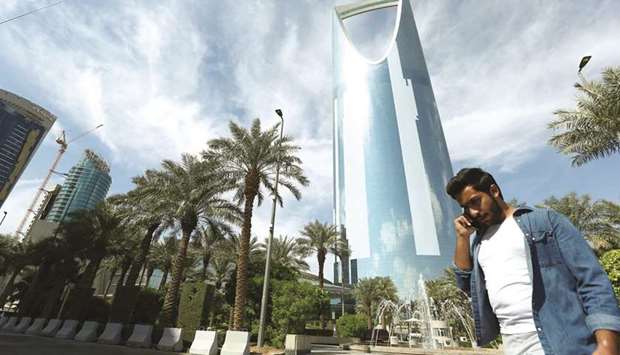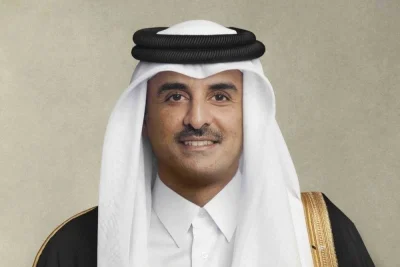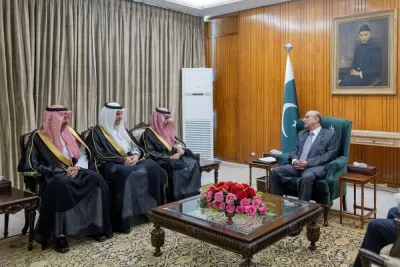Talks with suspects are expected to end this month and authorities will likely recover more than $100bn in settlements, a senior government official said, asking not to be identified because the details are private. Those who don’t reach deals will be referred to prosecutors, the official said.
Authorities have already agreed to drop charges against about 90 suspects, who were released, Attorney General Sheikh Saud al-Mojeb said in a separate interview at the Ritz-Carlton late on Sunday. About 95 people were still at the hotel, including five weighing settlement proposals, with the others reviewing evidence presented against them, he said.
“The royal order was clear,” al-Mojeb said. “Those who express remorse and agree to settle will have any criminal proceedings against them dropped.”
Saudi Arabia launched an unprecedented anti-corruption drive in November, rounding up hundreds of suspects including some of the country’s richest individuals and government ministers. Billionaire Prince Alwaleed bin Talal, whose current status is unclear, was among those detained at the 492-room Ritz-Carlton, as was former finance minister Ibrahim al-Assaf and Adel al-Fakeih, who was removed as minister of economy and planning on the eve of the arrests.
The purge fuelled speculation that 32-year-old Crown Prince Mohammed bin Salman was trying to eliminate opposition to an imminent accession to the throne, a claim dismissed by officials.
Stocks in companies owned by detainees slumped and Saudi billionaires moved assets out of the region to avoid getting caught up in the crackdown, people with knowledge of the matter said in November.
Though Saudi Arabia is trying to become more open, the probe was conducted in a “pretty non-transparent way,” Moritz Kraemer, global chief rating officer at S&P Global Ratings, said in a Bloomberg TV interview yesterday. The probe “could be a step in the right direction but it could also be a step towards more arbitrary ruling,” he said.
Al-Mojeb, who declined to discuss individual cases, defended the process against criticism. “We are in a new era,” he said. “Corruption will be eradicated. The campaign against corruption won’t stop.”
The senior government official who asked not to be identified said the investigation marked significant progress in Saudi Arabia’s fight against corruption, which he likened to a cancer spreading through the economy at a time when it’s undergoing a major transformation. While the crackdown might reduce foreign direct investment in the short term, it will bring benefits later on, he said.
Prince Mohammed is the architect of a plan to prepare the Saudi economy, which has historically relied on oil revenue and government spending, for the post-hydrocarbon era. The blueprint includes selling a minority stake in oil giant Saudi Aramco this year, slashing government subsidies to balance the budget and create enough jobs for Saudi nationals.
The settlement payments being processed were a combination of cash, real estate, stocks and other asset classes, the senior official said. Only a handful of those still detained at the hotel will likely reach an agreement with the authorities, the official said.
About 350 people have been summoned for questioning since King Salman ordered the anti-graft probe on November 4. Many came as witnesses or to provide information, with some spending only a few hours or less at the Ritz, the official said.
The palatial hotel that hosted US President Donald Trump in May was brightly lit shortly before midnight on Sunday. There was no sign of a large security presence outside the building and with the crackdown winding down, the hotel is taking bookings as of February 14.
Staff said current detainees had access to hotel facilities including a spa, gym and a bowling alley, and the restaurant could accommodate any special dietary requirements.
Bloomberg was unable to meet with detainees or independently verify the attorney general’s remarks. But two people who have spoken to some of those held said they were not given access to lawyers and were only allowed out of their rooms for questioning.
Al-Mojeb denied the suspects’ rights were violated. All had access to legal council and some did retain lawyers, though many chose to settle voluntarily without outside representation, he said.
A man speaks on the phone as he walks past the Kingdom Centre Tower in Riyadh (file). Saudi Arabia launched an unprecedented anti-corruption drive in November, rounding up hundreds of suspects including some of the country’s richest individuals and
government ministers.



